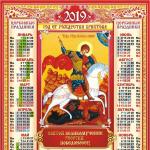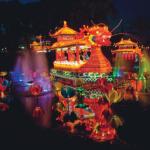Anyone who has ever read “Eugene Onegin” will certainly admire the perfection of its content, the beauty of the language and the ease of perception. But that's not all. This work traces the problems of Russian society at the beginning of the 19th century. After all, the freedom-loving and progressive youth of that time experienced great disappointment in what they saw and what awaited them in an empty social life. And Onegin is just one of these people.
The image of Lensky in the novel "Eugene Onegin"
An essay on this topic presupposes an answer to the question: who then is Vladimir Lensky? This hero received an unusually bright and lively characterization from Pushkin. He amazes with his decency, sincerity and vulnerability. The image of Lensky in the novel “Eugene Onegin” precisely personifies a certain contrast to the sophisticated and spoiled youngster, brought up without strict morality and educated at home - Onegin, who is already tired and disappointed with life and sees in it only deceit and aimlessness.

The author himself describes Lensky as a handsome man in the full bloom of his years, who lived and studied abroad for a long time and was far from Russia. Lensky was enveloped in the poetry of Schiller and Goethe, his soul was drawn to everything moral and pure. He had not yet had time to fade into the cold depravity of the world, because he was almost eighteen years old. For comparison: Onegin was 26 years old, he was not at all interested in poetry and did not write poetry.
The image of Lensky in the novel “Eugene Onegin” is a vivid type of an educated, cultured and still very young, dreamy and romantic person who tried to express all his emotions and experiences in his poems. He was a complete stranger in secular society; he did not like feasts and noisy, stupid conversations. Therefore, it was difficult for him to find like-minded people and like-minded people.
The image of Lensky in the novel “Eugene Onegin”: a summary of the relationship between the main characters
And then fate itself brings Lensky to Onegin’s house. A friendship immediately arises between them, although it is so strange and unusual. Two opposites came together, very different from each other, like a wave and a stone, like ice and fire. And even though they constantly argued, these people still felt mutual sympathy for each other. Lensky valued this friendship very much; it was of great importance to him, since he needed Onegin and wanted to share his experiences with him, and sometimes philosophize on various topics. Lensky deeply believed that they would always come to the rescue and fairly condemn the offender.

"Dear ignoramus at heart"
Pushkin more than once draws his attention to the fact that Lensky lives in a world of dreams and unfulfilled desires. He does not delve deeply into the essence of things and therefore literally immediately falls in love with Olga as soon as he sees her smile, light curls and light figure. And as a very romantic person, Lensky for himself adds to her image with perfections and virtues, feelings and thoughts that were absolutely not in her. He fell in love with Olga so madly. But she was by no means perfect.
This is how the author conceived the novel “Eugene Onegin”. The image of Lensky is presented there as too pure and selfless, because his main priorities in life were faith in freedom, friendship and, of course, love, which will destroy him.
Because of his keen perception and ambitions, he was very sensitive to the defiant behavior of the womanizer Onegin, who decided to spite him to flirt with his fiancée Olga. Now it seemed to Lensky that he had been cruelly deceived, and he was unable to bear this shame and therefore was forced to challenge Onegin to a duel. The fatal duel took place, and Onegin killed poor Lensky.

Coincidence or pattern?
The death of the young man is very symbolic and suggests that pure romantic and dreamy natures, far from reality, often die due to collisions with the harsh realities of life. This is probably how Pushkin sees the way out of the prevailing moral emptiness and immorality.
The image of Lensky in the novel “Eugene Onegin” is a bright representative of the advanced young aristocracy, who died at the hands of a comrade. Did it all happen by chance? After all, he was a man with excellent inclinations, a hopeful poet and a dreamy romantic.
Conclusion
Lensky's misunderstanding leads to his death. He was required to be restrained and use only common sense instead of maximalist principles and emotionality. But he could not reconcile; his ambition and ardor got in the way. And so he died, and precisely when it was necessary to show firmness and fortitude of character. This is how Pushkin decided to end Lensky’s fate.
If he had remained alive, then, most likely, he would have turned into an ordinary man in the street, disappointed in people, without the sentimentality that cynicism would replace. Pushkin, having conceived the image of Lensky in the novel “Eugene Onegin,” understood that such people at that time had no future, which is why the fate of this hero is so sad.
The novel in verse “Eugene Onegin” is known to everyone. The main characters of the work: Onegin, Tatyana, Olga, Lensky are unusually vivid and memorable images that brought fame to the author and made the novel immortal. How much time has passed, but readers want to look into the soul of Pushkin’s beloved heroine and reflect on the question of why Onegin, so smart and subtle, could not appreciate in time the priceless gift of love sent to him by God.
Another interesting young man is Vladimir Lensky, striking with his sincerity, decency and vulnerability to any blows of fate. I would like to understand the movements of his soul and heart. To do this, you need to know everything about his life, about his upbringing, thoughts and feelings, about his worldview and attitude. So, Vladimir Lensky:
Handsome man, in full bloom,
Kant's admirer and poet,
He's from foggy Germany
He brought the fruits of learning:
Freedom-loving dreams
The spirit is ardent and rather strange,
Always an enthusiastic speech
And shoulder-length black curls.
Such a comprehensive description gives us the opportunity to imagine the hero’s appearance, as well as find out how Vladimir’s personality was formed. “Under the sky of Schiller and Goethe” our hero was raised, “their soul was ignited in him with their poetic fire.” Lensky spent years away from Russia, receiving an excellent education in Germany. Having absorbed the “sublime feelings” inspired by Schiller and Goethe, the hero was far not only from Russia and its people, but also from reality. Lensky is a romantic poet, “who had not yet had time to fade from the cold debauchery of the world,” “he sang the faded color of life, almost at the age of eighteen.” He, like Onegin, was alien to secular society:
...He didn't like feasts,
He ran away from their noisy conversation.
Perhaps this alienation led Lensky to Onegin’s house. The friendship between them may seem strange and unusual, as Pushkin himself says:
They got along. Wave and stone
Poetry and prose, ice and fire
Not so different from each other...
Everything was new to Onegin in Lenskoye; not experiencing such feelings himself, he could not understand with his “chilled mind” Lensky’s romantic nature, but in his own way he became attached to the poet.
Lensky, a trusting and sensitive person, needed a faithful friend to whom he could trust his feelings, with whom he could talk on philosophical topics:
Everything gave rise to disputes between them
And it drew me to thinking.
Lensky “dear heart was a guide.” Living by feelings, he did not penetrate into the depths of things, was naive and was just beginning his independent life. Perhaps that is why Vladimir fell in love with Olga, noticing only “eyes like the sky, blue, a smile, flaxen curls, movements, voice, light figure...”. The author observes with emotion the hero’s feelings:
Oh, he loved like in our summer
They no longer love... as one
The Mad Soul of the Poet
I am still condemned to love.
But the object of Lensky's love is not ideal. Olga -: a frivolous girl, no different from many of her peers. Vladimir lacked life experience and insight, unlike Onegin, who immediately recognized an ordinary nature in Olga. Perhaps this alienation from real life decided Lensky’s fate. “Lensky is unable to bear the blow” after seeing the betrayal of his friend and lover:
Lensky called his friend to a duel,
Deciding to hate the coquette.
Lensky decides to protect Olga from the insidious tempter. So, the question arises about Lensky’s future fate. The hero has only two paths in life: to become an ordinary landowner-everyman by marrying Olenka, or to die. Pushkin chooses the second: death. Lensky was not destined to become a great poet, since he writes “darkly and listlessly,” “his poems are full of love nonsense.”
And so the poet was killed in a duel.
Olenka, to whom he dedicated not only his poems, but also his feelings and thoughts, for whom he gave his life, “cryed for a short time” about Vladimir. Onegin had a hard time experiencing the death of his friend, the cause of which was himself. The landowners regretted the death of the “half-Russian neighbor”, since quite recently
Rich, good-looking, Lensky
Everywhere he was accepted as a groom...
For Lensky himself, death was deliverance from philistine life among people reminiscent of the monstrous heroes of Tatyana’s dream.
The fate of the hero, which amazingly accurately predicted the fate of the author himself, so struck Mikhail Lermontov, the successor of A.S. Pushkin, that when speaking about the tragic death of the great Russian poet, he remembers Lensky:
And he is killed - and taken by the grave,
Like that singer, unknown but sweet,
The prey of deaf jealousy,
Sung by him with such wonderful power,
Struck down, like him, by a merciless hand.
Vladimir Lensky is one of the main characters of the novel in verse by A. S. Pushkin “Eugene Onegin”, Onegin’s friend and his antipode, Olga Larina’s fiancé. Lensky was only eighteen years old when he returned from Germany, where he was interested in Kant's philosophy and romantic poetry. He was handsome and rich, for which he immediately became known as an eligible bachelor. Being an educated man, he did not find friends among the surrounding ignorant landowners, but quickly became friends with Onegin, who, like him, was new to life in the village. Vladimir knew the Larins from childhood. In particular, he had tender feelings for Olga. She seemed to him like a feminine ideal, a kind of romantic heroine from books. The hero was cruelly mistaken in this.
By nature, Lensky was naive, romantic and simple-minded. Onegin, on the contrary, was a sophisticated womanizer who had long been bored with love affairs. It was he who discerned in Olga an ordinary and frivolous nature, but was in no hurry to disappoint his friend. After meeting the Larins, he only said that Olga’s sister seemed more interesting and deep to him. As a result, Lensky had to pay with his life for his mistake in choosing his beloved. After his death, the author speculated about what would have come out of him had he been alive. One way or another, the hero’s dual personality is obvious. Despite many years spent in Germany, the spirit of the Russian landowner still lived in him. If he became a poet, the landowner traits would break through in him. If I became a county landowner, I would still write poetry from time to time. In any case, he would not be happy, since it is impossible to combine such opposites in character.
Reading the novel “Eugene Onegin,” you admire not only the perfection of the work’s form, the beauty and ease of the language, but also the variety of problems raised by the poet that worried Russian society in the 20s of the 19th century. The main tragedy of the progressive youth of that time was disappointment in the reality around them, in the empty social life. Onegin is one of these disappointed people. And here is another hero of the novel: Vladimir Lensky. Pushkin paints an unusually bright and lively image, striking in its sincerity, decency and vulnerability from any blows of fate. Let's get to know this hero better. He was a handsome man, in the full bloom of his years, an admirer of Kant and a poet. From foggy Germany He brought the fruits of learning: Freedom-loving dreams, An ardent and rather strange spirit, Always an enthusiastic speech And shoulder-length black curls. From these lines we learn that Lensky spent his childhood far from Russia. He lived and studied in Germany, “under the skies of Schiller and Goethe,” where “their soul ignited in him with their poetic fire.” Lensky is a romantic poet, “who had not yet had time to fade from the cold debauchery of the world,” “he sang the faded color of life at almost eighteen years old.” We see a dreamy person who strives to express his moods and dreams in poetry. He is alien to secular society and stands out sharply against the background of trifles, brawlers, cockerels and harlics: ... He did not like feasts, He ran away from their noisy conversations. Lensky cannot find like-minded people in the society around him. And maybe this is what brings the hero to Onegin’s house. A friendship is born, so unusual and strange: They got together. Wave and stone, Poems and prose, ice and fire are not so different from each other. Despite the fact that “everything between them gave rise to disputes and led to reflection,” these people experience mutual sympathy. For Lensky, this friendship was especially important, since at that moment he needed a faithful friend, to whom he could entrust all his feelings, experiences, talk on philosophical topics: Treaties of past tribes, Fruits of science, good evil, And age-old prejudices, And graves fatal secrets. Fate and life in their turn, Everything was subject to their judgment. Pushkin shows Lensky’s idea of friendship, honor, nobility in this way, confirming that the hero highly valued friendly relations with Onegin: He believed that his friends were ready to accept shackles for his honor, And that their hand would not waver to break the vessel of a slanderer. The author draws attention to the fact that Lensky lives in his own romantic world. “A dear ignorant at heart,” the hero does not understand the full depth of the essence of things, and therefore falls in love with Olga, noticing only “eyes like the sky blue, a smile, flaxen curls, movements, a voice, a light figure...” According to Belinsky, Vladimir “ decorated her with virtues and perfections, ascribed to her feelings and thoughts that were not in her.” That is how it is. But he loved: Oh, he loved, as in our years they no longer love; like one Mad soul of a poet is still condemned to love... But we see that Olga is by no means ideal. She is the same as her peers, a frivolous girl, an ordinary person. From the pages of the novel you read, you understand that the essence and purpose of Lensky’s life was faith in love, friendship and freedom. And maybe that’s why the hero perceives Onegin’s bad joke as treason and betrayal of his best friend. “Unable to bear the deception,” Lensky challenges Onegin to a duel, “deciding to hate the coquette.” And so: Onegin shot... The clock struck: the poet silently drops the pistol.” The death of the hero is symbolic; it involuntarily leads to the idea that a romantic, a dreamer who does not know reality, must die when faced with life. For the poet himself, death is deliverance from life among ordinary people, a way out of the moral emptiness that reigns in secular society. A. S. Pushkin created an amazing image of a representative of the advanced noble intelligentsia, the image of a lyric poet who romantically perceives life and people, who believes in high friendship, in eternal, ideal love.
What is the significance of the image of Vladimir Lensky in the novel “Eugene Onegin”? How does this character help to understand the main characters of the work?
The fate of Vladimir Lensky has independent significance for the writer. First of all, his death in a duel is the climax of the plot. Lensky's death was predicted earlier, in Tatyana's dream, and is remembered more than once later. This image, with its individual sides, seems to adjoin, repeat, copy the central pair of characters and the author. Lensky is brought closer to Onegin by the semantics of surnames that have a “northern”, “river” sound. It is no coincidence that despite all the differences in life experiences, characters, and views, “they came together.” They are similar to Tatyana in many ways: in age, in the original Russian semantics of names, brought up on Western romantic literary models, far from the environment in which they live, dreamy and strange, inexperienced, which is why they make mistakes in their initial choice. It is no coincidence that the sophisticated and intelligent Onegin noticed that Tatyana is much more suitable for Lensky than Olga: “I would choose another, / If I were a poet like you.” Finally, Onegin played a similar fatal role in their fate. First, he “killed” the romantically inclined Tatyana:
With his eyes shining, Eugene stands like a menacing shadow,
And, as if burned by fire,
She stopped.
Then - the Romantic Poet himself. And later Tatyana tells herself that in Onegin she must hate “the murderer of her brother.”
The author discusses two options for Lensky's future. In this case, the first is called a worthy, high path: “Perhaps he was born for the good of the world / Or at least for glory.” Of course, the hero was not immune from other things. What is unfinished in it must be “developed” in the characters who remain to live, and in the author.
Onegin still has to go through the “killing shot”, now at him (“Eugene is standing, / As if struck by thunder, / In what a storm of sensations / Now his heart is immersed!”). However, it should be understood that Tatiana is harsh because of necessity: Onegin goes too far in attacking the values and rules that are indisputable for her (they were also the natural basis of the nature of the murdered Lensky). This “shot,” therefore, is more correctly considered “suicidal,” provoked by the hero himself. And his task is to become in a spiritual sense what Lensky, who was killed by him, could have become and what Tatyana achieved in her own way: she realized not a vulgar version of family life, but a sublimely spiritualized one, worthy of respect for its moral height, socially significant (“the good of the world "), according to the writer.
Lensky’s connections with the developing image of the author are also diverse. The genres, themes, and moods of Lensky's poems mentioned in the novel are close to those that can be found in the early work of Pushkin himself. The ideal of beauty of the young poet was not at all and always alien to Pushkin, who, ironically drawing a portrait of Olga, notes: “I used to love him myself, / But he tired me immensely.”
Parting with Lensky, the poet imperceptibly moves on to discussions about his work, fate, and speaks of a transition to other principles of creativity: “They are driving Summer towards harsh prose, / Summer is driving away the naughty rhyme.” But at the same time, he hopes to preserve what is so dear to him, Lensky’s passing youth, romantically colored poetry:
And you, young inspiration,
Excite my imagination
Revive the slumber of the heart,
Come to my corner more often,
Don't let the poet's soul cool down,
To become hardened, hardened...
Searched here:
- what is the role of Lensky in the novel Eugene Onegin
- the role of the image of Lensky in the novel?




